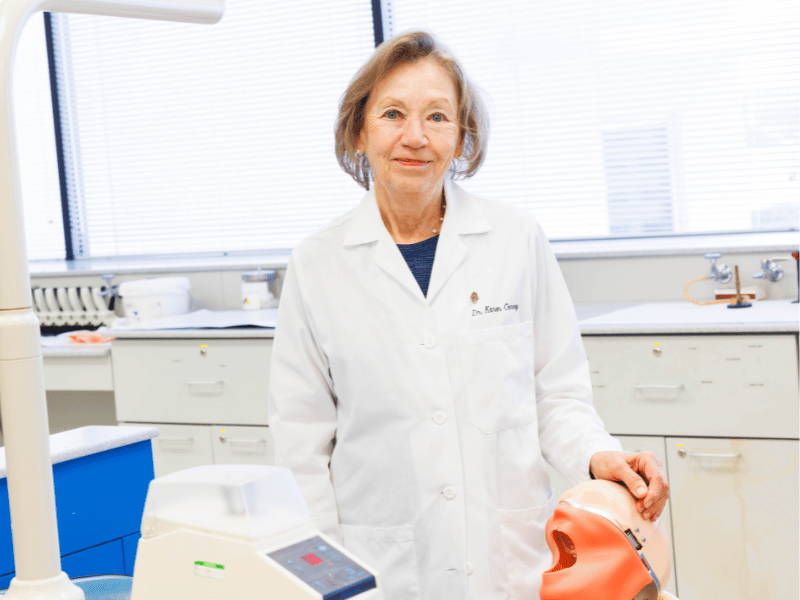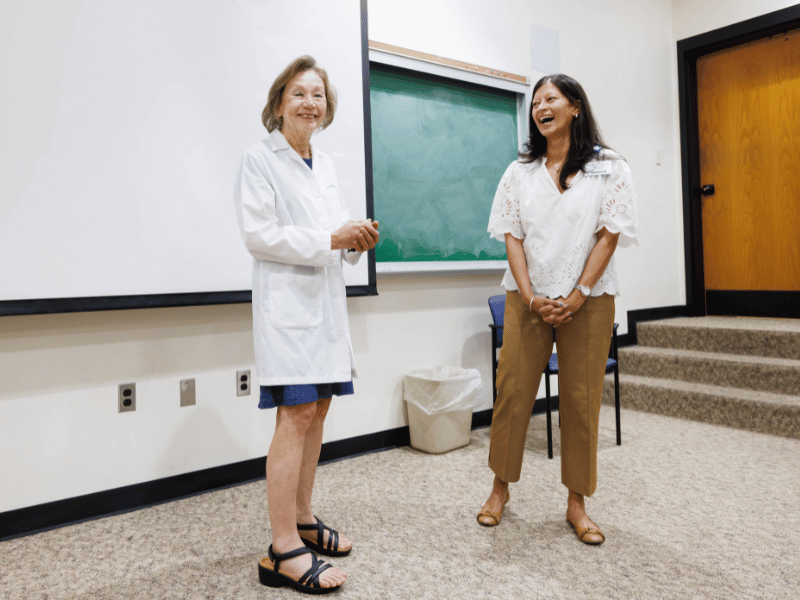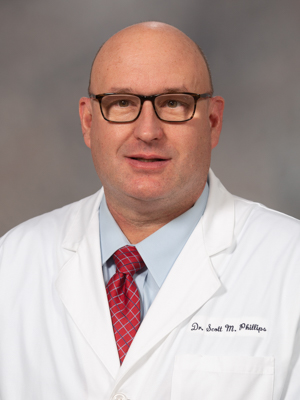Front and Center: Dr. Karen Carney

Dr. Karen Carney’s remarkable journey at the University of Mississippi Medical Center School of Dentistry began with its very first graduating class, a legacy she’s maintained by teaching every class since.
“It fascinates my students that I taught their deans—Dr. Lott, Dr. Phillips, Dr. Caskey, all these people were my students,” she said.
After growing up in Kansas City, Missouri, Carney moved to New Orleans where she attended college. She earned her undergraduate degree from Loyola University and continued her education at the Louisiana State University School of Dentistry. It was there that she met her husband, Dr. Michael Amonett, a budding oral surgeon.
Upon graduating in 1977, Amonett was invited to join the University of Mississippi Medical Center, and Carney would soon follow suit, joining him the following year. She began working part-time at the School of Dentistry, teaching the first graduating class in their final year while simultaneously working in her own private practice.

“My patients loved that I was a faculty member because if I had a question about oral pathology or if I was ever unsure about a case, I would bring the models over to the school and ask one of the faculty members what they thought,” said Carney. “My patients absolutely loved that and so did I.
“I was fortunate enough to have patients who were with me for as long as 40 years,” she said. “I’ve seen initial patients, then their children, and then their grandchildren. I saw them as families. It’s a little old fashioned, but that’s the way life was.”
Though she retired from private practice in 2019, after 41 years, working in the School of Dentistry is something she isn’t ready to let go of just yet.
“I’ve found it very rewarding to be here over the past 45 years,” she said. “This year, I’m teaching the youngest dental students, the D1s, and generationally, I’m more like their grandmother and I think that’s good for them. They need someone to encourage them like a grandmother. I don’t design their courses or make their final grade determinations. I can just be there for them. It’s wonderful for me and I think it’s good for them too.”
Carney said the duality of her career as an educator and clinician has helped her teach students not only how to perform in a technical setting, but also set them up to handle scenarios in the real world. One such student was Dr. Scott Phillips, who is now the associate director for clinical affairs at the School of Dentistry.

“Dr. Carney was a fixture on Friday afternoons in operative clinic when I was a student,” said Phillips. “She brought a touch of the private practice mindset to clinic. She made you think about your time management and proper planning for a patient visit. Many of the faculty in the mid-1990’s came from a military background, and Karen had a different approach to teaching that made the clinics more enjoyable.”
When Phillips returned as a junior faculty member, he taught operative clinic alongside Carney on Friday afternoons, where he continued to glean knowledge from the professor.
“I am not sure if she knew, at least I didn’t tell her, but the advice on what to look for and how to manage a clinic session were so helpful during the first couple years,” said Phillips.
“Over the years in clinics and more recently in preclinical courses, she continues to be the same Dr. Carney that helped me learn to place a filling as a student and teach clinical operative dentistry,” he said. “After almost 30 years as a student or colleague, Dr. Carney has not changed the way she approached teaching dental students. I still hear occasional ‘pearls of wisdom’ and advice she gives when working with students and appreciate how fortunate I have been over the years to have Karen as a friend and colleague.”
“My students give me insight into the world, and I can give them insight into how to treat patients,” said Carney. “It’s a very fair give and take. It’s been a win for me this adventure. I feel very blessed. I’m humbled and honored to have been here all this time and to have enjoyed it so much.”
Carney said that the best thing she’s gained in her decades of teaching and practicing dentistry has been the great friends and colleagues she’s gotten to know along the way. She feels honored to spend time among young minds, and grateful to continue to work alongside peers like professor emeritus Dr. John Smith, who was previously dean of admissions, and Dr. Jim Fitchie, professor and former chair of care planning and restorative sciences.
“We’re different generationally than their youngest instructors and faculty members,” said Carney. “I think it’s a good learning experience for them because they are going to treat patients who aren’t their age—some who are more our age. The patients have always been the most important thing and they still are.”
When she isn’t doling out pearls of wisdom, Carney takes courses like music appreciation and wisdom literature at Mississippi College, just a stone’s throw from her home in Clinton.
“School has been a big part of my life in every way,” she said. “I’ve always liked school—both sides, teaching and learning.”
Carney enjoys spending time outdoors on her farm in Edwards, relaxing by the lake and walking amongst the trees. She is well-known in the School of Dentistry for bringing in flowers that she has grown. Much like the minds of her students, something is always in bloom under Carney’s watch.
“In order to appreciate the world as it is, you have to have seen all the ways it changed,” she said. “That’s why I love teaching the young students—they keep me connected. I don’t have any grandchildren of my own, but I’ve adopted a few over the years. I’ve had a wonderful life. I’m very grateful. I’m obviously not finished quite yet.”


